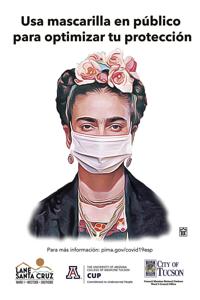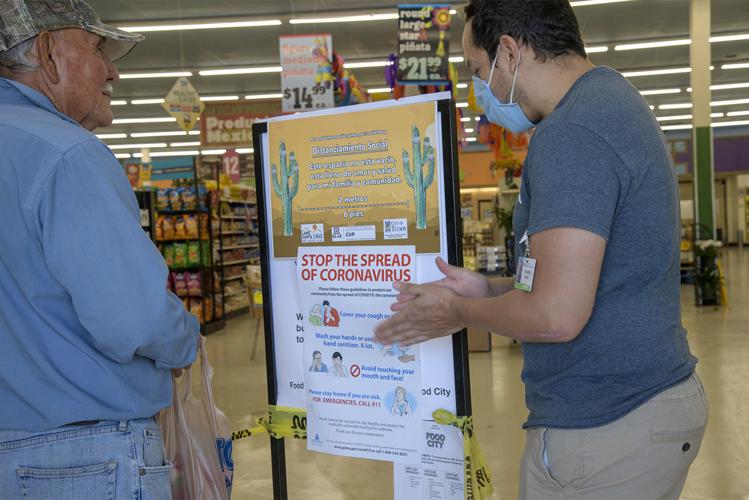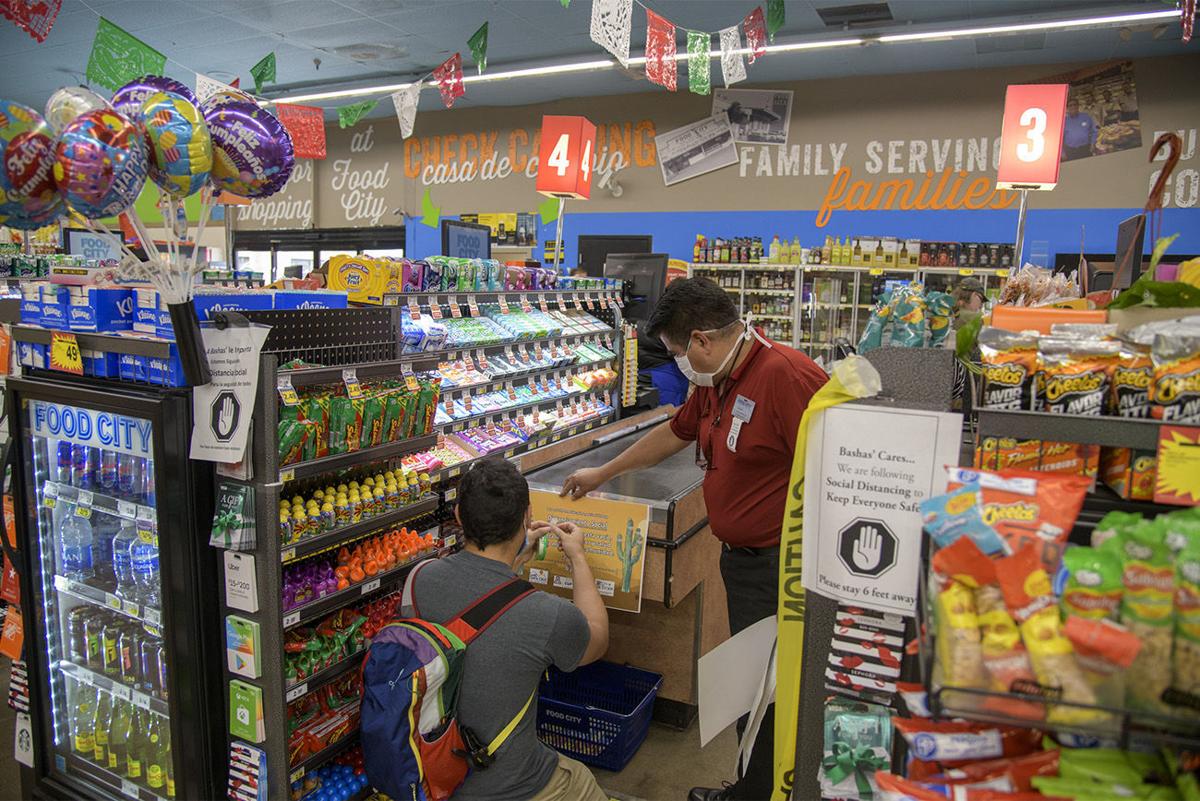An effort by four University of Arizona students to provide information about the coronavirus to Tucson’s Spanish-speaking community has gained financial backing from the U.S. Centers for Disease Control and Prevention, along with city and county support.
The effort — led by UA College of Medicine-Tucson students, three of whom are graduating this week — started with designing Spanish-language posters to underscore the importance of social distancing, hand-washing and wearing masks in public during the COVID-19 pandemic to be displayed in areas where Latinos typically shop, a UA news release said.
“I was talking to classmates later about still seeing a lot of noncompliance or lack of social distancing in grocery stores, Walmarts and places like that,” said Cazandra Zaragoza, a senior medical student. “We realized there really weren’t any posters and things in Spanish and, if there are, they have a lot of text and it’s not very visual. It’s not very appealing.”
Mock-ups, created by senior Ricardo Reyes, feature Mexican artist Frida Kahlo in a clinical mask, a prickly pear cactus warning others not to get too close, and saguaro cacti practicing the recommended 6 feet of social distancing.

A poster plays on the art and persona of Frida Kahlo in urging people to wear masks on their faces.
Printing of the posters was supported by the college’s Commitment to Underserved People program and city council members Richard Fimbres and Lane Santa Cruz. Funding from CDC became available when the students connected with Mary Kinkade, a Pima County Health Department program manager and local director of the CDC’s Racial and Ethnic Approaches to Community Health (REACH) program.
The posters are now featured in more than a dozen Tucson grocery stores on the west and south sides, including the Bashas-owned Food City, Cardenas Market, La Estrella, El Herradero and more.

Fourth-year UA medical student Ricardo Reyes, right, speaks with a customer at a Food City. The awareness campaign now has posters in more than a dozen Tucson grocery stores.
The campaign also made its way to San Francisco’s Mission District via social media. The Calle 24 Latino Cultural District organization there was inspired to launch a video contest dubbed “¡Chancla para el que no se llave la manos!” or “The flip-flop for those who don’t wash their hands!” – a playful twist on a well-recognized motherly threat in Hispanic households.
"We're tough as saguaros," editorial cartoonist David Fitzsimmons says. He says he saw a video made for the people of Detroit and became inspired to do his own take for Tucson.
For Santa Cruz, the Spanish-language posters are much needed, saying it’s important to “make sure we’re getting information out to our community in a way they can grasp and understand.”
“Collaborations like these are critical to flattening the curve and bridging the gap in access to health information,” added Kinkade.
The team, which also includes senior Arturo Martinez and incoming senior Guadalupe Davila, hopes to make the posters available for more stores, restaurants, salons and other businesses as well.

With a prickly pear cactus background, this Spanish-language poster warns not to get too close to one another.

This poster, when translated to English, reads “I take care of myself to take care of them.”









